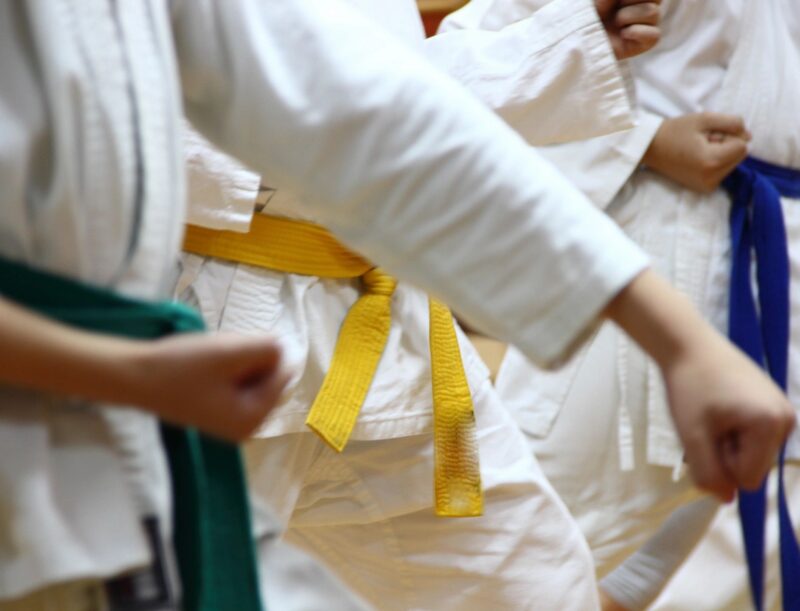As your children get to their teen years, you know that you have to let them do more on their own so they can spread their wings (with your guidance, of course). The problem is that the world isn’t always a safe place, and you want to make sure they’re safe when they aren’t with you.
Unfortunately, you can’t control what happens when your teenager is alone, and handing them self-defense tools like a can of pepper spray or stun gun can work against them. Luckily, there are tips and self-defense techniques you can teach your teen, so let’s look at the things you can control. But first, here’s the answer to a common self-defense question often heard from parents.
What Age Should You Start Self-Defense?
Opinions are mixed, but generally, you can start teaching your child self-defense at three to five years of age if it’s at a Dojo or with a private instructor. Some say kids start understanding the concepts of self-defense and can emotionally deal with it better at five years old.
It’s how you teach it to young children that matters. Before the age of six, it needs to be fun for kids because they can’t understand how to apply tips like avoiding peer pressure. Plus, young children may not have the motor skills necessary to do kicks and punches correctly.
Tips and Techniques to Teach Teenagers About Self-Defense
Here are the tips and techniques you can teach your kids to defend themselves if they need to.
Situational Awareness
One of the first things to teach your teenager about self-defense is situational awareness. Be sure to stress to them the importance of always knowing what’s going on around them even if they are out with friends. Teens like to focus on the fun and often don’t pick up on clues that danger is lurking nearby.
Tell them to look around to see what is going on and things they could use in case of an assault. The first thing they should do is run away if possible. They will often lose in any physical confrontation, and there’s no shame in running to a safe place.
Learn the Art of De-Escalation
De-escalation is basically talking in a way that prevents a situation from getting worse and often means speaking calmly and avoiding losing your temper. Sometimes, this is challenging because teenagers are emotional and easier to rile up. It often means walking away—and that’s a smart move, not cowardly.
De-escalation can also mean cooperating with an assailant and just handing over your money instead of fighting to keep it. But make sure they know that sometimes cooperating is bad, like if someone is trying to abduct you. Tell your teen to do anything they can to get away—scream, bite the attacker, run, fight, etc.
Trust Your Gut Instincts
One important thing your child should know is to trust his or her instincts. Help them understand that if they don’t feel right or are uncomfortable, then their intuition is trying to tell them something. Teens often worry about what others think of them, how they look and they don’t want to hurt someone’s feelings.
Let them know that if they feel like someone is watching them or see a suspicious group of people to stay away. Don’t shrug off uncomfortable feelings just to look cool. Trusting your gut and being aware of your surroundings can save your life.
Tell Your Teen to Use Their Smartphone
Most teenagers are attached to their phones, so this should be easy. The location app on their smartphone can be a self-defense tool. Tell them to always let someone know where they are.
And make sure that they understand their social media pages can be seen by anyone, even creepers, if it’s public. They should know to be careful when posting their location.
Give Them a Self-Defense Tool
Refrain from giving them anything too dangerous that someone could use against them. Pepper spray is a great option and comes in spray, mist, stream or foam. This is the best choice as it allows you to stay further away while letting you aim effectively. But the key is making sure your teen knows how to use it correctly.
Also, a good tactical penlight is easy to conceal and serves a dual purpose. You can actually write with it, but it’s also helpful in identifying potential threats. With the penlight, you can even temporarily blind your attacker to get away.
Stay in Groups
One of the best pieces of advice you can give your kids is to stay in a group. Assailants and bullies are not as likely to target your teen if he or she is with a group of friends. For teens going away to college, tell them to stay safe by going to parties with friends instead of alone. Also, tell them not to go off alone with a new acquaintance. If they must separate from friends, tell your teen to let their friends know who they are leaving with and where they’re going.
How to Find the Best Self-Defense Training for Your Teens
If you want your teenager to learn more about the practical application of self-defense techniques, skip the classes at your local YMCA, as they focus more on competition. Krav Maga is great training for your teen because it focuses on real-life scenarios and how to counterattack. They don’t need to learn how to ground fight with someone. Instead, they need to know how to disable an attacker or rapist and run like hell.
These are the basics of self-defense for teenagers. While these tips may seem like common sense to you, teenagers don’t always pick up on these things.
Tell them how important situational awareness is and how to prevent becoming a victim using some of the tips mentioned here. There are some great ways listed here that can empower your teen to stay safe while remaining independent. That independence is important for self-growth and will help your teen grow into a confident adult.


